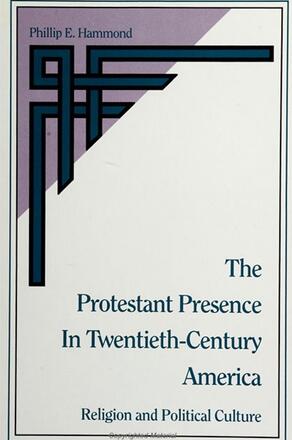
The Protestant Presence in Twentieth-Century America
Religion and Political Culture
Alternative formats available from:
Description
Protestantism has undergone a shift in its relationship with American culture and politics. This book analyzes and evaluates that shift. The author shows how Protestantism began in America as a vibrant civil religion and how it developed so that, by the 1970s, its relationship with American culture and politics had changed radically. He shows how Evangelical Protestantism came into being and remains resilient.
Hammond also discusses religious culture as it dealt with the courts—the separation of church and state, and the changing meaning of this doctrine.
Phillip E. Hammond is Professor of Religious Studies and Sociology at the University of California, Santa Barbara. He is co-editor of The Future of New Religious Movements and editor of The Sacred in a Secular Age: Toward Revision in the Scientific Study of Religion, among other titles.
Reviews
"It brings together some of the important work on the Protestant Church in modern America. Hammond is a well-known scholar in this area, and his historical view is an especially strong feature of the book. " — Ruth Wallace, George Washington University